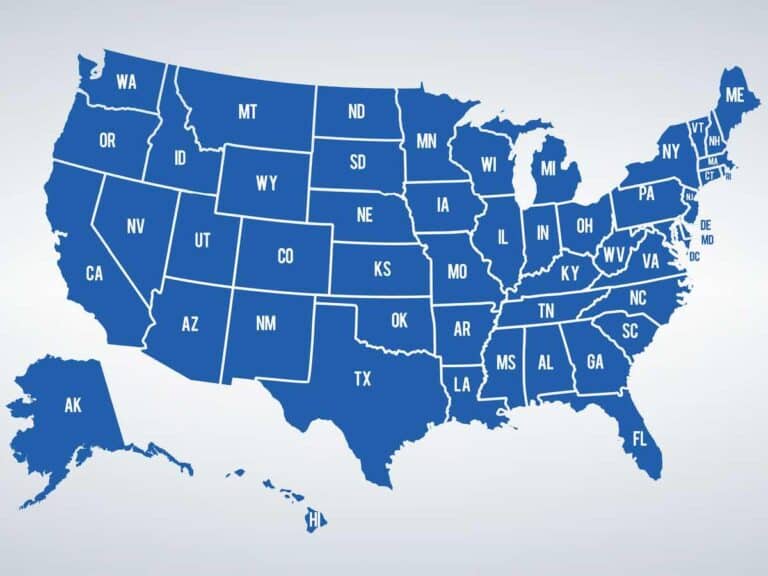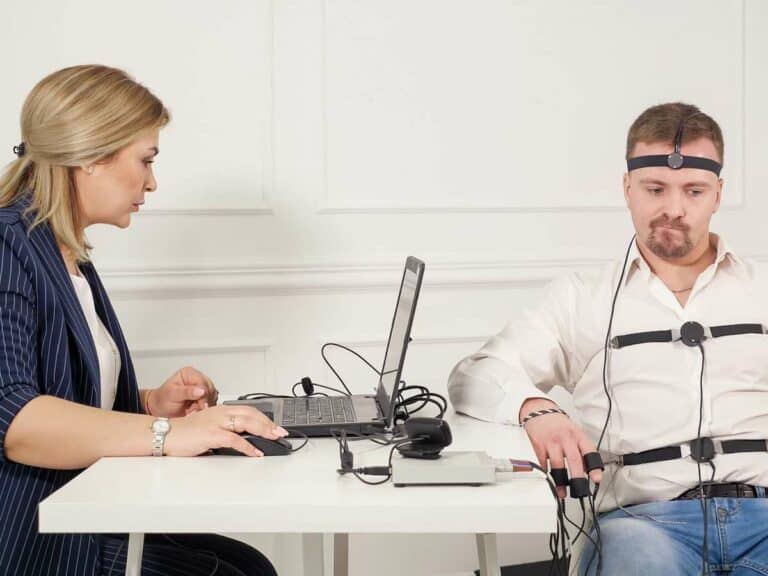Six Jobs That Require Polygraph Tests
You don’t have to commit a crime just to be asked to be strapped to a lie detector machine. In some instances, something as simple as applying for a job can cause you to be subjected to it.
There are many jobs that require applicants to undergo a lie detector test as a part of the pre-employment screening process. Many of them are posts in various federal, state and local government agencies. Some private companies may also require applicants to take a polygraph exam.
Before anything else, let’s get one thing straight: even if a polygraph test is a part of the job application process, you can say no to taking one because, after all, it is everyone’s right to refuse it.
But because it’s a part of the screening, you may not be eligible for the job you are after.
Continue reading if you are currently seeking employment. Below, you will come across a few jobs that require all interested parties to take a lie detector test beforehand. There are many other jobs that require the same, so make sure that you carefully read the requirements or do sufficient research before you apply.

1. Intelligence Officers
Simply put, intelligence officers provide the kind of service that is important for our national defense. What they do is collect, analyze and report information about the activities of domestic groups as well as the government of other countries in order to protect the security and interests of the US.
Because of the nature of their job, it isn’t surprising why those who are applying as intelligence officers have to undergo rigorous pre-employment screening, which includes having a lie detector test. Some of the most commonly asked questions include, but are not limited to, the following:
- Criminal activities
- Falsification of information
- Theft from previous employer
- Alcohol abuse
- Use of illegal drugs
Undergoing a polygraph exam, however, doesn’t begin and end during the application process.
Based on the personal statement of a CIA analyst, CIA employees have to take a lie detector examination after every 5 years. The individual added that, despite being in the intelligence industry with ample knowledge of how a polygraph works, it’s still possible for intelligence officers to fail the test.
The good news is that failing a lie detector exam doesn’t necessarily mean getting terminated — those who fail are asked to retake the test a few times until they pass.
According to the same CIA analyst, an upper manager failed around 7 exams and still remained employed.
But new CIA applicants are the ones who tend to fail a polygraph in large numbers. And other than a lie detector test, a background check of the hopefuls is also conducted. The results of both the polygraph exam and investigation are compared with one another in order to put everything into context.
As of 2022, the median salary of intelligence agents in the US is $94,318 per year. The best-paid 25% make an average of $106,431 per year. On the other hand, the lowest-paid 25% make about $83,780 per year.
Becoming an intelligence officer requires having a minimum of a bachelor’s degree. The good news is that no specific field of study is required, although some of the most common ones include:
- Accounting
- Business
- Criminal justice
- Finance
- Foreign language
- International studies
- Law
- Political science
Internship and a related prior job experience are a requirement.
Getting an intelligence officer job can be pretty tough. This is especially true if you are planning on becoming one of the 10% assigned as field operatives.
2. Correctional Officers
On an everyday basis, correctional officers put their safety and, more importantly, their lives at risk. That’s because they work with violent criminals in jails and prisons. But it’s not just themselves that they need to safeguard but also the individuals they work with, from those who are sentenced to those who are arrested and waiting for trial.
Here are some of the most common duties and responsibilities of correctional officers:
- Enforce rules and maintain peace and order within jails or prisons
- Supervise various activities of inmates
- Inspect facilities in order to make sure that they meet security and safety standards
- Search the rooms and the inmates themselves for any contraband items
- Escort and transport inmates to and fro courtrooms, penal institutions, etc.
The median salary of correctional officers is $47,920 — that’s $23.04 per hour. The top-paid 25% make an average of $62,940 per year. The lowest-paid 25%, meanwhile, make approximately $38,590 per year.
Attending a training academy is a requirement for those who like to become correctional officers. And to be able to attend, having a high school diploma or something similar to it is the minimum requirement. The length of training can vary from state to state. Some of the subjects included are:
- Institutional policies, regulations and operations
- Security procedures
- Self-defense
But those who are after a job in federal prisons must have a bachelor’s degree as well as 1 to 3 years of full-time experience in a related field, such as the provision of counseling.
Because of the nature of their job, as expected, individuals who are looking to become correctional officers have to take a lie detector test as a part of the pre-employment screening process. Correctional facilities simply want to be certain that the officers tasked with supervising offenders are honest, reliable and responsible individuals.
So, in other words, jails and prisons don’t want deceitful people running everyday tasks.
Needless to say, questions asked during the polygraph examination are crime-related topics. Some of the most critical ones are about drug use, alcohol abuse, theft, falsification and other questionable activities one may have committed before. Questions about one’s personal life may be included, too.
Disclosing a past recklessness may not necessarily mean getting disqualified. Lying about it, on the other hand, may keep an individual from qualifying as a correctional officer.
3. Border Patrol Agents
BPAs for short, border patrol agents are tasked with detecting, preventing and apprehending terrorists, undocumented non-citizens and smugglers of non-citizens and illegal narcotics at or near international land borders and coastal borders.
Some of their everyday duties and responsibilities include:
- Respond to electronic sensor alarms installed in remote areas
- Interpret and follow tracks, marks and other physical evidence of undocumented non-citizens and smugglers
- Use state-of-the-art technology (infrared scopes, etc.) during nighttime operations
- Perform line-watch duties, traffic checkpoint operations, city patrols, transportation checks, etc.
In order to be eligible for a border patrol agent position, one must meet the minimum requirements. Having a high school diploma or an equivalent is a must. However, a bachelor’s degree is preferred.
Hopefuls must also take an entrance exam, which consists of 2 parts: the experience record and the logical reasoning test. It’s also a must for applicants to be US citizens and have resided in the US for at least 3 years of the last 5 years, unless for military purposes. Needless to say, they must also have a valid driver’s license.
Being eligible to carry a firearm is another very important minimum requirement.
According to the website of the US Customs and Border Protection (CBP) itself, all BPA applicants must undergo a background check. And an integral part of it is a lie detector test. The result of the test plus the outcome of the preliminary vetting checks, investigation proper and final adjudication determine whether or not a person is eligible.
Once in, there are many career opportunities available to choose from. It’s also possible for one to advance his or her career as a border patrol agent. Some positions include:
- Horse patrol
- Bike patrol
- Boat patrol
- K-9 unit
- Off-road vehicle unit
- Border patrol tactical unit
- Mobile response team
- Border patrol search, trauma and rescue
- Honor guard
As of 2022, the average base salary of border patrol agents working in the country amounts to $78,409 per year. It’s in the following states where BPAs make the most per year:
| STATE | AVERAGE ANNUAL SALARY |
| Alaska | $87,896 |
| California | $87,583 |
| Washington, DC | $87,214 |
| New Jersey | $86,689 |
| Massachusetts | $85,309 |
4. Security Guards
Also referred to as security officers, security guards protect an assortment of properties against theft, vandalism and other illegal activities. It’s a must for them to stay focused and alert, always on the lookout for just about anything suspicious and unusual. Some security guards carry firearms in order to be able to protect individuals and assets better.
It’s not uncommon for some security guards to be assigned patrol areas where they conduct security checks. Meanwhile, there are also those who are assigned stationary positions where they monitor alarms or surveillance cameras.
The responsibilities of security guards vary, depending on where they work.
Because of this, the salaries of security guards in the US can vary, ranging anywhere from as low as $11.18 per hour to as high as $24.06 per hour. Currently, the median annual salary of security guards in the country is $31,470. The top-paid 25% get about $39,170 per year. The lowest-paid 25%, on the other hand, receive around $28,890 per year.
Industries with the highest concentration of employment in security guards include investigation agencies, security agencies, gambling industries, banks and facilities support services.
The following are the top-paying industries for security guards:
| INDUSTRY | ANNUAL MEAN WAGE |
| Natural gas distribution | $79,320 |
| Civil engineering construction | $77,260 |
| Monetary authorities | $66,650 |
| Scientific research and development | $65,600 |
| Equipment and instruments manufacturing | $62,580 |
In most instances, a high school diploma or something similar to it is the minimum educational requirement those who are planning on working as security guards must meet. In some industries, however, aspirants with an undergraduate degree in a related field, such as social science or security and protective services, are preferred.
Newly hired security guards have to undergo training, too, which can cover the likes of communication, crime prevention and emergency procedures. Training can take a few weeks to several months to complete.
Individuals applying as security guards at companies that provide services such as security (plainclothes or uniformed), armored car personnel and personnel engaged in the design, installation as well as maintenance of security alarm systems are subject to a lie detector test as a part of the pre-employment screening process.
The same is true for those whose potential employers provide protection for:
- Public transportation
- Shipment or storage of toxic materials
- Water supply facilities
- Facilities that engage in the production and distribution of electric or nuclear power
- Facilities or operations having a significant impact on the health and safety of people and the country
5. Firefighters
In the US, firefighters make a median salary amounting to $50,700 per year. The best-paid 25% make an average of $65,980 per year. On the other hand, the lowest-paid 25% make about $37,140 per year.
Here are the top-paying states for firefighters:
| STATE | AVERAGE ANNUAL SALARY |
| New Jersey | $84,930 |
| California | $80,990 |
| Washington | $76,280 |
| New York | $72,670 |
| Colorado | $68,300 |
In order to become a firefighter in the US, one must have a high school diploma or an equivalent at least. In some states or certain positions, it’s important for applicants to have an emergency medical technician (EMT) certification. This requires some postsecondary instruction on things such as dealing with trauma and clearing obstructed airways.
Having an EMT certification is a requirement in some instances because firefighters provide medical attention in a variety of situations. As a matter of fact, the majority of calls to firefighters, according to data from the National Fire Protection Association (NFPA) itself are for medical emergencies instead of fires.
Training and apprenticeship programs have to be completed, too, depending on the position.
During the pre-employment screening process, a background check on the applicant is conducted. And an integral component of it is a lie detector examination. One may choose not to comply to take a polygraph test. However, he or she runs the risk of not getting employed.
It goes without saying that the goal of the polygraph exam is to make sure that people can count on the firefighter at all times, which means that the individual must exhibit reliability and trustworthiness.
Some of the most probable lie detector test questions for firefighters include:
- Have you ever experimented with drugs such as marijuana, ecstasy, LSD and crystal meth?
- Have you ever partaken in a drug transaction?
- Have you been around anyone abusing drugs illegally within the last six months or year?
- Have any insurance claims you made ever been proven fraudulent?
- Have you ever been fired from a job?
- Have you ever stolen at a job?
- Have you ever been accused of sexual harassment on the job?
- Have you ever been arrested for a crime, including DUI, arson, violent assault or spousal abuse?
6. Pharmacists
Simply put, pharmacists are doctors specializing in dispensing prescription medications to patients. They are also tasked with providing information on the proper and safe use of drugs.
There are different types of pharmacists:
- Community pharmacists – Work in retail stores such as drug stores and independently owned pharmacies.
- Clinical pharmacists – Can be found in various healthcare settings like clinics and hospitals.
- Consultant pharmacists – Provide information to healthcare and insurance providers.
- Pharmaceutical industry pharmacists – Engaged in research, development and testing of new drugs.
No matter the type of pharmacist preferred, one must earn a doctor in pharmacy (PharmD) degree, which can take around 8 years to complete. He or she must take continuing education courses in order to stay updated on the latest in pharmacological science as well as maintain their license.
Some may obtain additional degrees, such as a master’s in public health or business, depending on the work.
The median annual salary of pharmacists in the US amounts to $128,570. The top-paid 25% make around $143,600 per year. The lowest-paid 25%, on the other hand, make an average of $121,070 per year.
Here are the top-paying states for pharmacists:
| STATE | AVERAGE ANNUAL SALARY |
| California | $146,140 |
| Alaska | $145,910 |
| Oregon | $136,520 |
| Washington | $134,290 |
| Vermont | $130,460 |
Because they will have access to prescription drugs, it’s not uncommon for individuals who are applying for jobs at a pharmacy that requires them to fill prescriptions and dispense medications to undergo a lie detector test as a part of the pre-employment screening process.
Other than pharmacists, pharmacy technicians applying for jobs may also be required to take a polygraph test.
And at any given time during the course of their employment, they may be asked to take a lie detector test, too, such as when reasonably suspected of stealing prescription drugs and selling them outside the workplace and without a prescription, such as what happened in Super-Rite Drugs in Van Nuys California a few years ago.
Just Before You Apply for a Job That Requires a Polygraph Test
Besides the ones we discussed above, there are many other jobs that require applicants to take a lie detector test as a part of the pre-employment screening process.
Suppose the post you are after will require you to be around huge sums of money or prescription or even illegal drugs or be tasked with the health and safety of people or even the entire country. In that case, chances are that you will be asked to take a polygraph examination for the employer to determine whether or not you are suited for the job.
Refrain from assuming that it’s illegal and you should report the company.
Some private companies and all federal, state and local government agencies are not prohibited by the Employee Polygraph Protection Act (EPPA) to conduct a lie detector test on applicants. Of course, you can always say no to the exam. However, you may lose your eligibility for the post simply for not complying.






